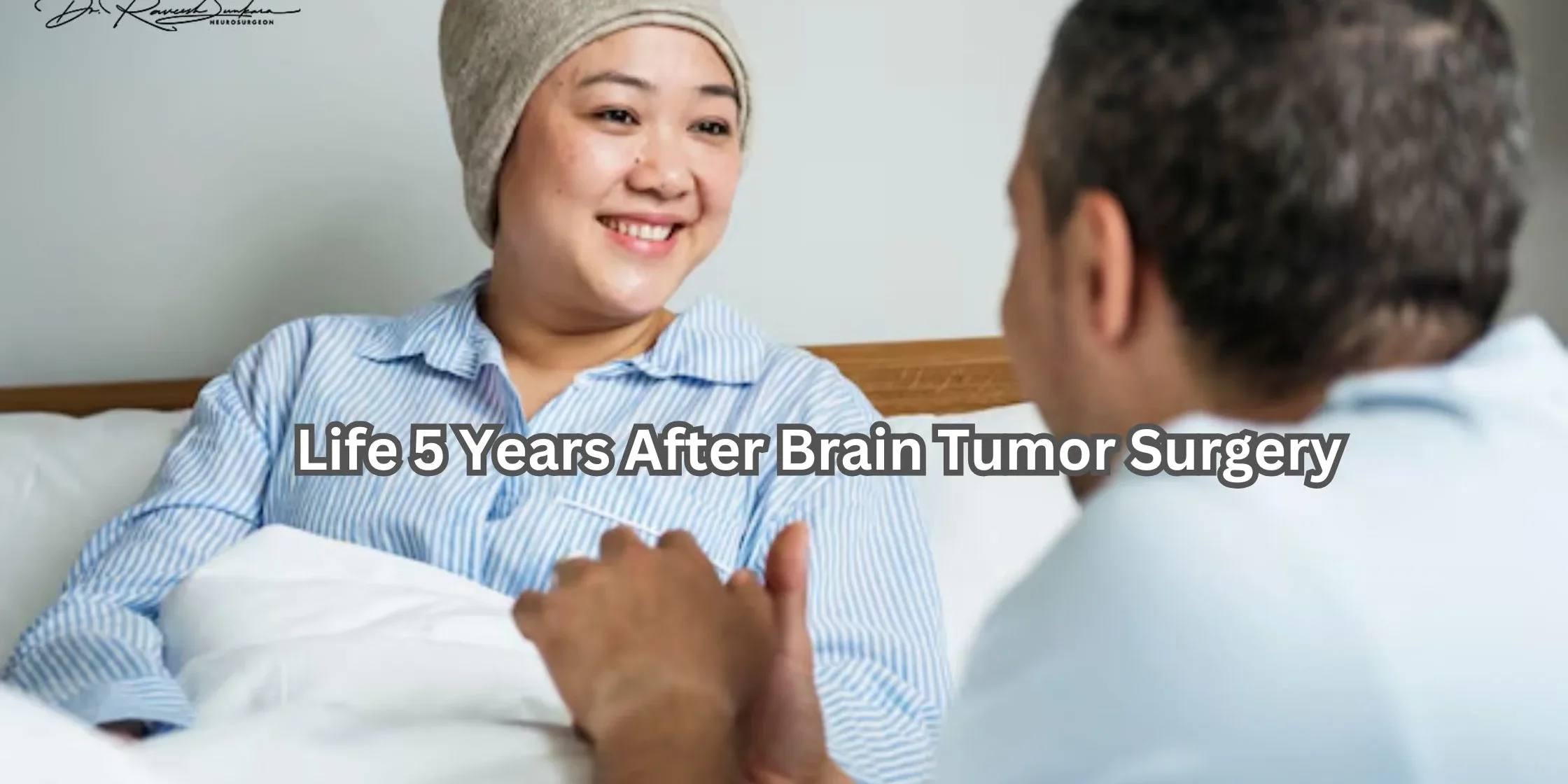Undergoing a brain Tumor surgery is absolutely one of the most difficult moments in one’s life. Although the procedure is a major landmark, the journey does not end there. Life after the surgery is marked by recovery, adaptation, and resilience. Five years after surgery, patients often look back at the changes they have experienced- physical as well as emotional.
In this blog, we’ll explore what life looks like five years after brain Tumor surgery, the long-term effects, and how survivors can manage challenges to lead fulfilling lives. We’ll also discuss the advancements in brain Tumor treatment in India and the role of experts like Dr Raveesh Sunkara at Arete Hospital in transforming patient outcomes.
Understanding the Recovery Process After Brain Tumor Surgery
Recovery after brain surgery is usually a slow process that can be different for each patient. The hardest period usually exists for the first months, when the body tries to recover from surgery and adapt to neurological changes. However, many patients continue to suffer from some effects even after five years have passed.
The First Year: The Path to Recovery
- Some patients develop side effects such as tiredness, impaired memory, and mood changes from brain surgery.
- Possible complications of a brain Tumor include swelling, infection, or fluid accumulation that may need further medical attention.
- Physical therapy, speech therapy, and cognitive rehabilitation are some of the interventions that aid recovery of lost functions.
Years 2 to 5: Finding a New Normal
- Most patients find a stable routine by the second or third year, adapting to any lasting brain Tumor surgery after effects.
- Some continue to experience brain seizures after brain surgery, requiring long-term medication and monitoring.
- Psychological challenges such as anxiety and depression may persist, emphasising the need for ongoing emotional support.
- By year five, many patients return to work, social activities, and independent living with necessary adjustments.
Long-Term Side Effects of Brain Tumor Surgery
Even years after surgery, certain brain Tumor surgery side effects can impact daily life. These effects depend on the location of the Tumor, the type of surgery performed, and the patient’s overall health.

1. Cognition and Memory Impairments
- Inability to focus or think clearly or rapidly.
- Inability to hold information in one’s short-term memory, making it difficult to perform work tasks and daily routines.
- The challenges can be helped with note-taking, reminders, and routine ways of doing things.
2. Psychological and Mental Impacts
- Brain Tumor survivors are likely to suffer from depression and anxiety.
- Neurological changes may trigger mood swings and personality changes.
- Counseling, meditation, and support groups help to stabilise the emotions.
3. Physical Inabilities and Tiredness
- Most patients report persisting fatigue long after the recovery time following surgery for a brain Tumor.
- Others may have weakness in movement, balance, or even muscle weakness, especially if the Tumor involves areas controlling movement.
- Regular exercise, physiotherapy, and proper diet can mitigate these problems.
4. Chances of Relapse and Follow-Up Medical Evaluation
- The patient should receive periodic scans and follow-ups via MRI to watch for brain tumor symptoms relapse.
- Even in cases where the Tumor does not return, monitoring for the long-term effects of craniotomy is necessary.
Advancements in Brain Tumor Treatment in India
India has become a global hub for the best brain Tumor treatment in India. Advanced medical technology and expert care are provided in this place. Innovative neurosurgical techniques combined with comprehensive rehabilitation ensure safer procedures, quicker recovery, and better long-term outcomes for patients.
Read Also our Blog: How Much Does Brain Tumor Treatment Cost in India?

- Minimally Invasive Neurosurgery
Modern surgical techniques may remove the exact Tumor with only minimal damage to healthy brain tissues. These surgeries reduce complications and shorten hospitalisation periods, helping patients recover and regain their independence faster and more efficiently.
- Tailor-made Treatment Options
As every brain Tumor is different, the treatment varies based on the type of Brain Tumor, location, and overall health condition of the patient. Specialists such as Dr Raveesh Sunkara will develop an individualised program that ensures optimal recovery with minimum risks to deliver the best outcome for each case.
- Comprehensive Rehabilitation Services
Recovery is not limited to surgery, and rehabilitation becomes an integral part of the long-term healing process. Leading hospitals such as Arete Hospital provide physical, speech, and cognitive therapy, helping patients regain independence and confidence in life after brain Tumor surgery.
The Role of Support Systems in Long-Term Recovery
No one ever tries to heal alone from brain surgery. There’s family, friends, and the medical team around the survivors to guide them in life after brain surgery.

Family and Caregivers
- Emotional and practical support for day-to-day activities
- Promote good habits and compliance with medication use.
Health Experts and Therapists
- Periodic follow-up consultations with neurologists and neurosurgeons.
- Speech, occupational, and physical therapists assist in retrieving lost functions.
Community and Support Groups
Sharing experiences can help to normalise struggles and inspire hope.
Connecting with others who have gone through similar things gives one emotional encouragement.
Hope and Resilience After Brain Tumor Surgery
A five-year mark after the surgery can be counted as an important milestone. Although difficulties will continue to be present, many survivors will find ways to adapt and grow. With proper medical care, lifestyle adjustment, and a positive attitude, life after surgery for a brain Tumor becomes worthy and full of meaning.
If you or your loved one is navigating life after brain Tumor surgery, know you are not alone. Advances in medical science and careful care, like that provided by Dr. Raveesh Sunkara, make recovery more manageable than ever. Learn more about your treatment options and post-surgery care at DrRaveesh.com.
FAQs
What are the long-term side effects of brain Tumor surgery?
Long-term side effects of craniotomy may include memory loss, fatigue, difficulty concentrating, and emotional changes. Some patients also experience brain seizures after brain surgery, requiring ongoing care.
How long does it take to recover after brain surgery?
Recovering from a brain Tumor operation time varies from a month basic to one year full recovery. Rehabilitation helps in the improvement of long-term outcomes.
Will life return to normal after brain Tumor surgery?
Most people adapt well to life after brain Tumor surgery with proper medical care, rehabilitation, and lifestyle changes. However, some will experience the repercussions for a long period of time.
What is the risk of recurrence of the brain Tumor after surgery?
Tumors can recur, and early detection coupled with management necessitates frequent MRIs and follow-ups with specialists like Dr Raveesh Sunkara.
Where can one find the best brain Tumor treatment in India?
Arete Hospital offers expert care through advanced brain Tumor treatment in India- the best-in-class surgery, rehabilitation, and long-term monitoring







